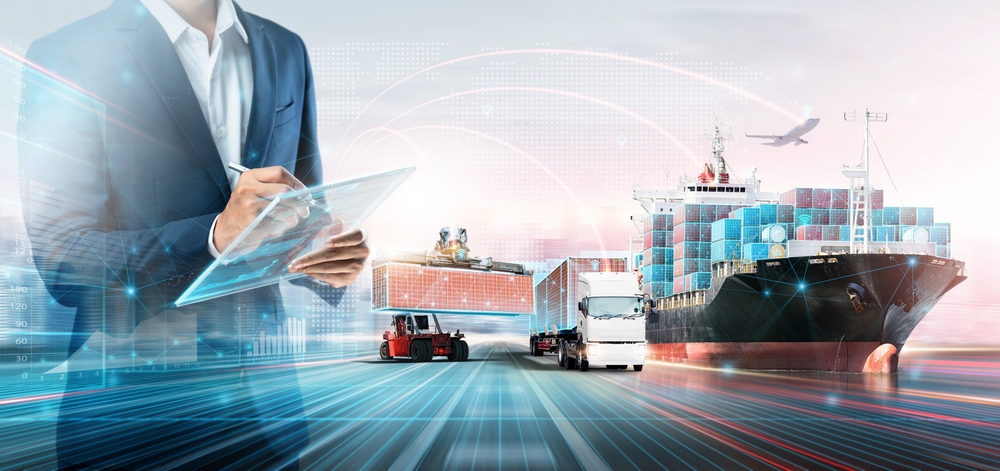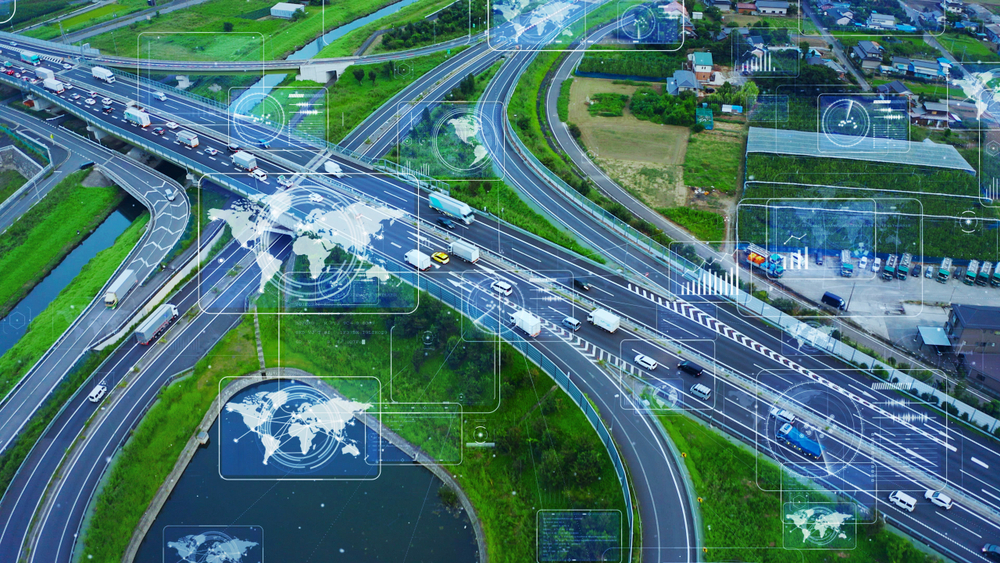
What Is a Transportation Management System?
6min read
Millions of tons of freight move across the United States every day, highlighting the importance of effective transportation management. Whether you rely on trucks, airplanes, trains, or boats, a transportation management system is vital to keeping things moving smoothly.
But exactly what is a transportation management system (TMS), and how does it facilitate the flow of goods? We’ll explore how TMS technology can help you better manage your transportation costs and ensure your customers and business partners receive products on time.
Defining TMS
A TMS is a software platform that assists in planning and executing the movement of goods. Many businesses use these systems, including e-commerce companies, logistics service providers, manufacturers, retailers, and distributors.
Implementing a TMS simplifies transportation operations, enhances supply chain visibility, and increases efficiency, making it a worthwhile investment. Transportation management systems also streamline shipping processes, optimize logistics, and track the timely delivery of goods.
Why are transportation management systems crucial?

A TMS affects every aspect of the supply chain, helping businesses plan, implement, and optimize the efficient transportation of goods. A comprehensive system manages multiple functions during each stage.
Transportation planning
The primary goal of transportation planning is maximizing efficiency and minimizing costs. A TMS helps with these planning-related functions:
- Order view and management: Order view and management features give team members access to information about routes, truck locations, scheduling changes, assigned transports, and more.
- Shipments tendering: If you work with multiple carriers, you can use a TMS to tender each shipment based on custom parameters. For example, you can have your TMS tender shipments based on which carrier charges the least or has the highest on-time delivery rate.
- Creating and managing pricing rules: When you implement a TMS, you gain access to several rate-management features, including the ability to create pricing rules based on different tariff schemes.
- Loading space planning: A comprehensive TMS allows you to record vehicle measurements, making it easier to determine the maximum size of a load. Some systems even have 3D plans available, which helps team members determine better ways to use limited cargo space.
Transportation execution
Transportation execution involves connecting with carriers, tendering shipments, tracking shipments, and paying each carrier. A TMS can help you with these execution functions:
- Fleet management: If you manage your own fleet, you can use a TMS to organize fleet assets, assign drivers, and manage dispatch activities.
- Dock scheduling and load sequencing: A TMS streamlines dock scheduling and load sequencing activities, ensuring drivers aren’t wasting time waiting for their assignments.
- Generating and managing digital documentation: Whether you operate your own fleet or rely on a network of carriers, you need to keep good records. A TMS helps generate invoices, bills of lading, and other documents. If you have a question about a shipment, you can quickly look up the corresponding documentation.
Transportation visibility
In transportation lingo, visibility is the ability to monitor goods as they move through the supply chain. With a TMS, you can take advantage of these visibility-related functions:
- Connectivity with customers and trading partners: Advanced transportation management systems allow you to create customized portals for your customers and business partners, enhancing communication.
- Business intelligence: A TMS gives you access to real-time data to help you make optimal decisions about route assignments, shipment tendering, and other transportation activities.
- Track and trace capabilities: If you implement a TMS, you can track the movement of goods in real time, eliminating the need to contact drivers.
9 transportation management system benefits
Once you implement a TMS, you have access to dozens of features, making it possible to streamline every aspect of your transportation operations. These are some of the top transportation management system benefits:
- Enhanced visibility and control over transportation operations
- Improved operational efficiency and cost savings
- Streamlined communication and collaboration with carriers and suppliers
- Optimized routing and scheduling for timely deliveries
- Improved customer service
- Simplified supply chain activities
- Increased accuracy
- Better decision-making capabilities
- Improved compliance
TMS integration
A TMS must be seamlessly connected to other systems for the greatest benefits. These systems are commonly connected to TMS to ensure smooth operations:
- ERP: An enterprise resource planning (ERP) system automates many back-office functions to increase productivity. You can more easily plan transportation activities after integrating TMS with ERP.
- WMS: What is a warehouse management system? It's a program used to control your warehousing operations. Many transportation management systems integrate with WMS, enabling you to coordinate shipping and warehousing activities.
- 3PL: A third-party logistics company provides e-commerce fulfillment services to its customers. Integrating 3PL with TMS helps facilitate the transport of goods from a 3PL provider to a customer, retailer, or distributor.
- Accounting tools: If you're using a bare-bones TMS, its accounting functions may be limited and require support from other programs. Integrating TMS with other accounting tools lets you streamline invoicing, billing, and related activities.
- Business intelligence: Integrating a TMS with advanced business intelligence tools makes it easier to collect and analyze transportation-related data.
TMS vs. WMS
The primary difference between a TMS and a WMS is each system's area of focus. A TMS helps coordinate the movement of goods between locations, optimize carrier selection, and ensure timely deliveries. In contrast, a WMS manages the storage and movement of inventory within a warehouse facility.
What's next for transportation management system companies?

The transportation industry is changing rapidly. Once you fulfill your basic transportation management system requirements, watch out for future developments. Here's what you can expect from TMS technology in the future:
- Blockchain: Blockchain technology increases transparency within and among businesses. With this technology, it's possible to develop complex integrations for companies involved in every aspect of supply chain management.
- Internet of Things (IoT): IoT is a broad term used to describe the use of sensors and other technology to connect physical objects. With IoT devices, you can monitor your fleet minute-by-minute, increasing safety and reducing transportation-related costs.
- AI and machine learning: AI and machine learning provide more accurate predictions based on your transportation data. With AI, your TMS could even offer customized recommendations regarding delivery routes or preferred carriers.
- Digital assistants: With an advanced TMS, you may be able to set up a digital assistant to handle routine inquiries, improving customer service and strengthening your relationships with trading partners.
Frequently asked questions
Still have some burning questions about TMS? Here are a couple of common queries:
What is a transportation management system used for?
A TMS is used for all transportation-related activities, including planning, execution, and visibility. Implementing a TMS gives you better control over shipments, resulting in lower costs, more on-time deliveries, and increased customer satisfaction.
What is an example of a transportation management system?
SAP and Oracle are two major companies providing TMS solutions. Examples of transportation management systems include Alpega, Blue Yonder, and MercuryGate.
Streamline your business with Orderful
Transportation management systems help you get your products into the hands of partners and customers, but what about transporting information? Electronic data interchange (EDI) provides a convenient and technology-forward way to communicate with standardized tools and automated procedures.
Integrating your TMS with EDI maximizes efficiency and reduces costs. Speak with an Orderful expert to learn more about streamlining your business with our modern, cloud-based EDI solution.
Go live with new trading partners in days, not months. Orderful’s modern EDI platform standardizes integrations and streamlines testing, getting your business connected with partners 10x faster than other solutions.
Learn Morenewsletter

Talk to an EDI Expert today
Join us on the journey to change the way the world trades EDI
schedule a demo →